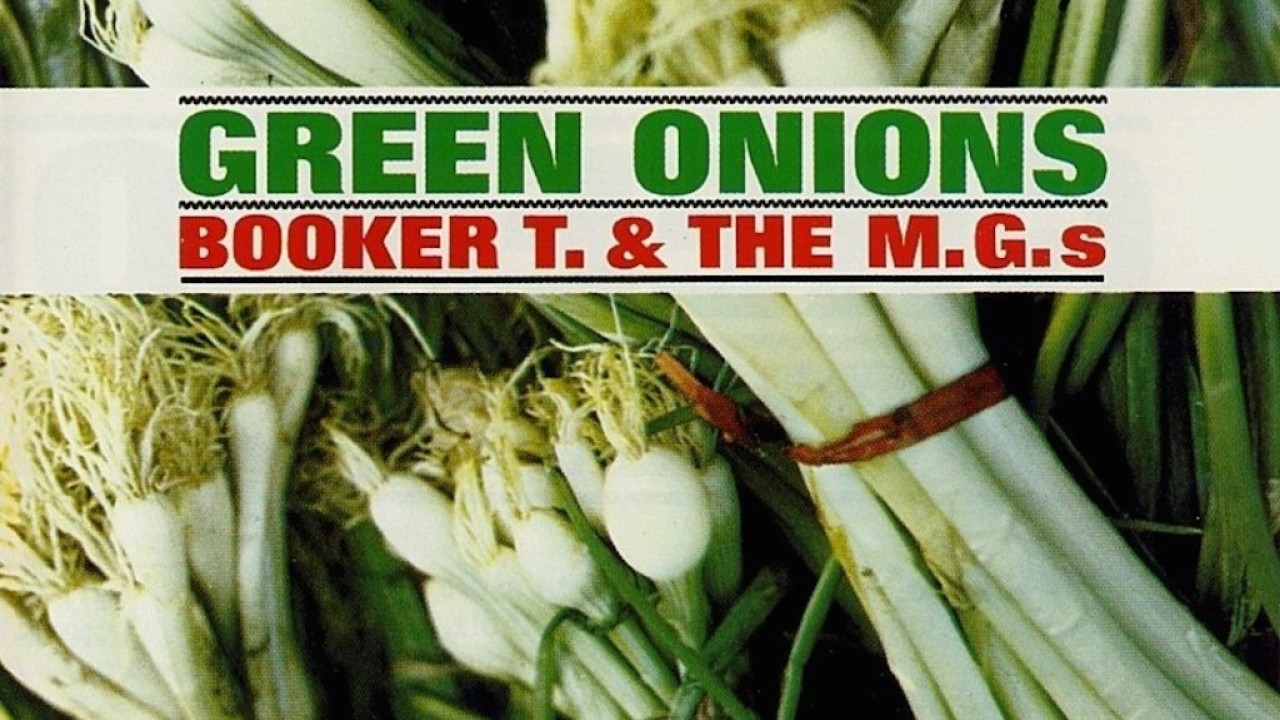Booker T. & The M.G.'s – Green Onions (Stax, 1962)
In 1962 Bo Diddley released a song called You Can’t Judge a Book by the Cover. That same year however, Booker T. & the M.G.’s released their debut album Green Onions and what people saw on the record sleeve was exactly what they got inside - 12 slices of deep-fried Southern rock and soul.
The original line-up heard on Green Onions comprised of Booker T. Jones (organ, piano), Steve Cropper (guitar), Lewie Steinberg (bass) and Al Jackson, Jr. (drums). The four members formed the group in 1962 as the house band of seminal soul and R&B label Stax Records, and they went on to play on hundreds of recordings by some of the decade’s leading hit-makers, including Sam & Dave, Eddie Floyd, Wilson Pickett and the inimitable Otis Redding. To this day they remain one of the most respected and imitated acts of that era.
Whilst the majority of the tracks on their first album weren’t original compositions but rather covers of popular songs, the artistry on display is one of the finest half hours of instrumental music ever recorded, from any genre. You’d be forgiven for thinking the world need never hear another version of I Got A Woman aside from the remarkable Ray Charles original, but the organ and guitar work from Jones and Cropper on their instrumental interpretation gives the song a whole new dimension, and more than makes up for the lack of confidence in any of the band members to assume vocal duties on this, or indeed any other tracks on the album.
Twist and Shout is equally satisfying, as is the rave up rendition of You Can’t Sit Down, and that’s again thanks to the technical capabilities of the players. It’s tempting to highlight the virtuoso skills of band leader Booker T. and lead guitarist Steve Cropper, but that would be underplaying the significance of the rhythm section and the contributions that Lewie Steinberg and Al Jackson, Jr. made to the overall texture of the record. As a unit they were so tight, so deeply in the pocket of the overall groove, there’s not a single note or nuance out of place from start to finish.
This album afforded the band the opportunity to fully showcase their skills and tellingly its stand out moments are indeed the three original compositions, most notably the title track, which just might be the greatest instrumental song of all-time. A Top 10 hit on both sides of the Atlantic, Green Onions began life as an improvisational jam during some down time whilst the band were recording backing tracks for rockabilly artist Billy Lee Riley. Luckily the session was recorded and the resulting track, initially meant as the B-side to Behave Yourself (also featured on this album) was quickly reissued as the A-side after it proved to be the bigger hit.
Green Onions is a classic sweet-sour cut (like its name suggests) that somehow manages to be funky, soulful, gritty and tough in equal measures, and it still sounds fresh and foreboding to this day. It’s sequel Mo’ Onions was an attempt to replicate the formula and success of the band’s first hit single, and although it doesn’t quite achieve its goal it’s a distinct enough to warrant a release and it’s a more than worthy follow up to its predecessor, whilst the slow blues of B-side Behave Yourself strides along beautifully to the Morse Code-like march of Booker T.’s Hammond.
If you listen to music predominantly for the lyrics then this record probably won’t be up your street, but if you’re someone who’s equally moved by the music as you are by words then this album is a must own. It contains some of the most accomplished arrangements ever recorded, played by the first racially integrated group in the history rhythm and blues, and would serve as inspiration to countless musicians from the British Invasion movement during the immediate years that followed this record’s release.

